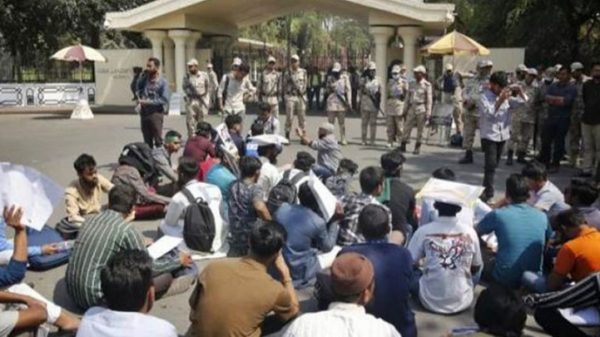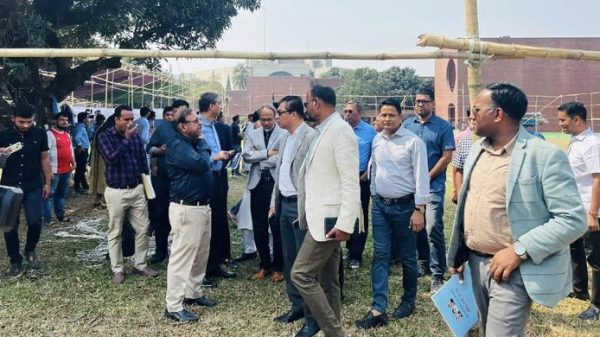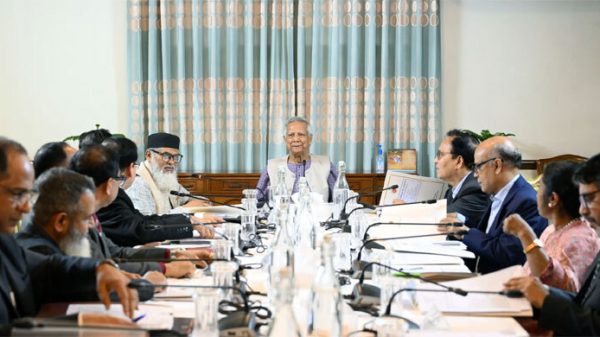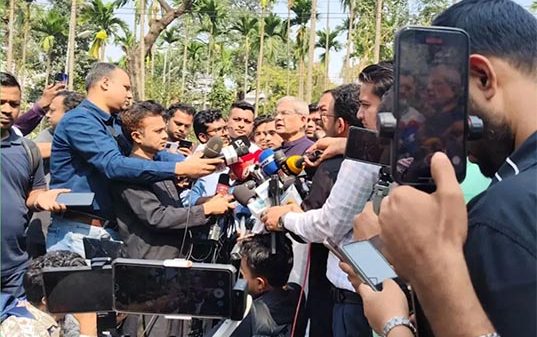High fuel costs linked to lack of competition : Fouzul

- Update Time : Saturday, 7 December, 2024, 06:06 pm
- 58 Time View
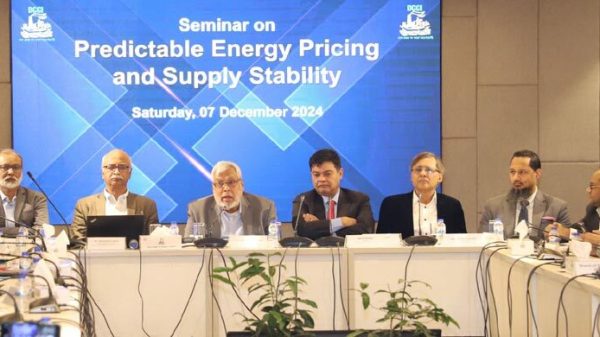
Online Desk : Energy Adviser Muhammad Fouzul Kabir Khan has attributed the high cost of procuring energy and power to the dominance of a few companies and a lack of competition in the power sector. Speaking at a seminar titled “Affordable Price and Uninterrupted Supply of Fuel”, organised by the Dhaka Chamber of Commerce and Industry on December 7, he highlighted the pressing challenges in the sector.
Subsidy burden and fuel prices : Fouzul revealed that consumers pay an average of Tk 8.55 per unit of electricity, whereas the government purchases it at Tk 12 to Tk 25. Similarly, imported LNG, costing Tk 70, is being supplied to industries at Tk 30. This pricing gap has led to a subsidy burden of Tk 52,000 crore, translating to approximately Tk 3,000 per capita annually. “To address these challenges, we must ramp up domestic gas extraction. While we require 4,000 MMCFT of gas, our current supply is under 3,000 MMCFT. Open tenders for projects like the 70 CMFT gas reserves in Bhola will ensure transparency and efficiency,” he said.
Solar and renewable energy initiatives : Fouzul highlighted several initiatives to promote renewable energy, including: Introducing merchant power plants to replace Independent Power Producers (IPPs).Advertising 40 solar power projects, with government-provided land for development. Utilising unused land held by government agencies for renewable energy projects. Offering a 15-year tax exemption for renewable energy investments. Urging banks to adopt asset-based lending systems to finance renewable energy ventures. He also mentioned a 35% reduction in oil procurement costs due to open tenders, saving Tk 370 crore.
Expert recommendations : Professor Dr Mohammad Tamim of BUET, in his keynote speech, suggested adopting 3- to 5-year action plans for energy pricing and emphasised the need for domestic gas exploration to reduce reliance on imports. He highlighted the wastage of 130 MMCFD gas due to system inefficiencies and recommended feasibility studies for coal extraction and rooftop solar projects. Professor Dr Badrul Imam of Dhaka University emphasised that despite Bangladesh’s significant natural gas potential, the current challenges in the energy sector stem from a persistent reluctance to invest in exploration activities. Instead, there has been a notable reliance on importing gas. Highlighting Bangladesh’s geographical positioning among countries rich in natural gas reserves, such as Nigeria and the United States, he stressed that there is no alternative to ramping up domestic gas exploration efforts.
Dr Ijaz Hossain, a former BUET professor, urged the business community to engage more actively with the government to help stabilize fuel prices. He pointed out that the volatility of the dollar in the local market has made energy imports costlier, driving inflation and negatively impacting the economy. To mitigate these issues, he called for increased focus on tapping into domestic natural resources. Ijaz also highlighted the potential for renewable energy, noting that Bangladesh could generate 15,000 megawatts of electricity by utilizing just 1% of agricultural land for solar power projects. He encouraged the proactive use of unused agricultural land to advance the country’s renewable energy goals.
Industry perspective : Dhaka Chamber President Ashraf Ahmed noted that fuel consumption has quadrupled over the past two decades to 45 million tons of oil equivalent (TOE). He stressed the urgent need to ensure uninterrupted fuel supply at affordable rates and to boost local production to meet industrial demand. Other participants, including Imran Karim of Confidence Group, Md Nurul Akhter of the Bangladesh Solar and Renewable Energy Association, and Soumitra Kumar Mutsuddi of BSRM, echoed the need for strategic investments in renewable energy and efficient resource utilisation.



